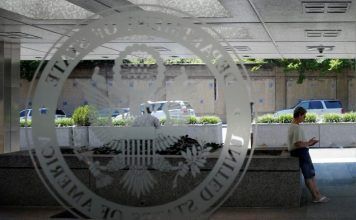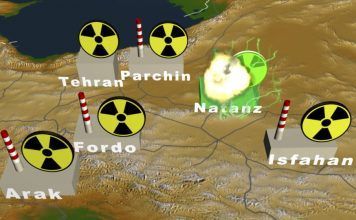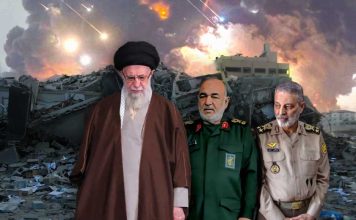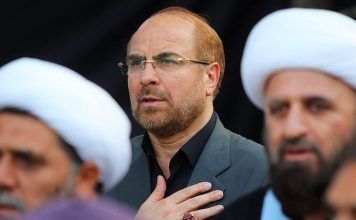By Ahmad Rafat
The Islamic Republic of Iran has conducted 70 executions in the space of two weeks. It is hanging people at the rate of three a day. Iranian authorities have executed 225 people since the start of the Iranian New Year (March 21).
“Execution is our only talent,” Mowlavi Abdelhamid, leader of Iran’s Sunni community, recently said.
The statement expresses an undeniable truth.
[aesop_image img=”https://kayhanlife.com/wp-content/uploads/2023/05/2023-02-24T000000Z_1833020004_MT1NURPHO000KD8NXN_RTRMADP_3_GERMANY-PROTEST-IRAN-1.jpg” panorama=”off” credit=”(Photo by Ying Tang/NurPhoto).” align=”center” lightbox=”off” captionsrc=”custom” caption=”Dozens of protesters are taking part in a protest for freedom of Iran and demanding the release of Jamshid Sharmahd, a German-Iranian who could be executed by the Iranian regime in Bonn, Germany, on February 24, 2023 ” captionposition=”left” revealfx=”off” overlay_revealfx=”off”]
Shortly after it was established in 1979 after the overthrow of the monarchy, the Islamic Republic executed a number of senior military commanders and government officials. Those arrested were never given due process, proper legal presentation, or fair trials.
The Islamic Republic has continued that same trend for the past 44 years. Defendants arrested on trumped-up charges of “acting against national security” can get legal presentation only from a pool of lawyers approved by the Judiciary.
Iran Executed More Women in 2022 Than Any Other Country, Report Says
For the Islamic Republic, non-political executions are not a deterrent against crime, given the overwhelming evidence in Iran and elsewhere that capital punishment does not result in declining crime rates.
Rather, Iran uses capital punishment as retribution to intimidate and terrorize the population. In the past 44 years, the Islamic Republic has shown that it cannot and does not want to serve the public. Instead, it is out to silence the people.
What the events of recent months have shown, however, is that this policy is less effective than before. Iranians are resolved to topple the medieval regime that stops at no crime, not even executions, to prolong its rule by a few years.
Under the Islamic Republic Penal Code, a number of offenses are punishable by death. They include murder (intentional killing), manslaughter (unintentional killing), certain drug-related convictions, and political opposition to the regime.
Most of the people executed recently were convicted of “insulting secret beliefs,” a category which includes Moharebeh (enmity against God), Afsad-i Fel-Arz (spreading corruption on earth), Sab-ul-Nabi (blasphemy), Baghi (armed revolt), and Ghasas (vengeful justice/retribution/eye for an eye).
There is a direct correlation between the political climate in Iran and the number of executions being carried out there. Executions, even for non-political offenses, have surged with the nationwide protests sparked by the September death of Mahsa (Zhina) Amini while in the custody of the morality police in Tehran. The protests have morphed into a “national revolution” and a global movement with the slogan “woman, life, freedom.”
In the past, the Islamic Republic would scale back the number of death sentences and executions in the runup to any election. The significant rise in executions is a device by the Islamic Republic to spread fear and terror among the population.
Many ethnic Baluchis have been protesting in Zahedan (the capital of the southeastern province of Sistan and Baluchestan) every Friday for the past several months. The state executed 174 Baluchis in 2022 on various drug charges. The figure amounts to 30 percent of all executions carried out in Iran in 2022.
VIDEO: Iran Ordered Highest Number of Executions Since 2015 Last Year
It is a significant figure, given that ethnic Baluchis comprise only 3 to 4 percent of the country’s population. In addition, half of the 70 people executed in Iran for alleged crimes in the past two weeks were Baluchis. Most Baluchis sentenced to death are convicted on drug trafficking charges.
Most illicit drug trades in Iran are controlled by crime gangs who allegedly work closely with the Islamic Revolutionary Guards Corps (IRGC). Several international organizations have reported on the cooperation between these groups.
Therefore, executing a young Baluch man who is a drug mule cannot be a preventive measure. The question is why an ethnic Baluch would risk their life for $10 or $20.
The answer is straightforward. Half a million Baluchis do not have birth certificates, which would allow them to secure a national identification number. As a result, they are deprived of their fundamental civil rights, including access to healthcare, education, and legal employment, assuming they can find jobs.
How can an ethnic Baluch without a birth certificate make a living besides selling drugs or bilking fuel?
Some of those bilking fuel are allegedly shot and killed on the roads by the IRGC and police forces acting outside the law.
Ghasas (vengeful justice/retribution/eye for an eye) was the basis of 288 executions in 2022, i.e., 49 percent of the total death sentences in the country.
The late Mahatma Gandhi famously said: “An eye for an eye will only make the whole world blind.”
Each execution adds a family to the list of those who believe revenge is their right, perpetuating the cycle of violence and vengefulness. While most countries’ criminal laws distinguish murder from manslaughter, the Iranian penal code does not. As a result, the Iranian Judiciary sentences anyone convicted of murder or manslaughter to Ghasas.
Therefore, a minor change in Iranian law can decrease the number of those sentenced to Ghasas. Under the current law, a death sentence could be downgraded with the victim’s family’s consent. An increasing number of people do not insist on exacting Ghasas. Evidence suggests that many Iranian families do not support capital punishment, even for convicted criminals.
Although 288 people were executed in 2022 following the punishment of Ghasas, 624 others were spared the death penalty after the victims’ families agreed to downgrade their sentences.
The Islamic Republic uses religion to justify capital punishment. Therefore, the death penalty will remain part of the country’s penal code if the current regime remains in power. It must be noted that in the Islamic Republic, execution is not a punishment but an intentional crime and state-sanctioned murder.
[aesop_image img=”https://kayhanlife.com/wp-content/uploads/2021/09/2021-09-11T000000Z_1075140853_MT1NURPHO000VT5XOV_RTRMADP_3_STANDING-FOR-HUMAN-RIGHTS-IN-IRAN-PROTEST-IN-EDMONTON-scaled.jpg” panorama=”off” credit=”A protester holds posters with Navid Afkari images. Members of the local Iranian diaspora, gathered in front of the Alberta Legislature building during the protest ‘Standing for Human Rights in Iran’ on the eve of the first anniversary of the execution of Navid Afkari. Navid Afkari was an Iranian wrestler who was sentenced to death and executed after having been falsely accused and convicted of murdering a security guard during the 2018 Iranian protests. On Saturday, September 11, 2021, in Edmonton, Alberta, Canada.” align=”center” lightbox=”off” captionsrc=”custom” caption=” (Photo by Artur Widak/NurPhoto)/REUTERS./” captionposition=”left” revealfx=”off” overlay_revealfx=”off”]
In the Islamic Republic Judicial system, defendants are charged based on forced confessions extracted under torture. They cannot choose their lawyers and are convicted in show trials in courts that administer no justice.
In most court cases, the verdict is a foregone conclusion, and the trial is just for show and propaganda. The only way to reduce the number of executions in Iran is to increase political pressure on the Islamic Republic regime.
Recent experience has shown that the Islamic Republic backs down under concerted pressures from the international community. For instance, under pressure from the international community, the regime suspended its medieval practice of stoning.
Unfortunately, the regime has held the West hostage to its nuclear program. As a result, Western nations have remained silent about the increasing number of executions in Iran.
However, while the West has remained silent for most parts and only issued statements criticizing the killings of ethnic Baluchis and protesters in recent months, it has condemned the execution of British-Iranian Alireza Akbari, former Iranian deputy Defense Minister, on Jan. 14 and Swedish-Iranian dissident Habib Farajollah Chaab on May 6.
https://kayhanlife.com/society/human-rights/irans-government-executes-swedish-iranian-man-convicted-of-being-behind-attack-on-military-parade-state-media/











